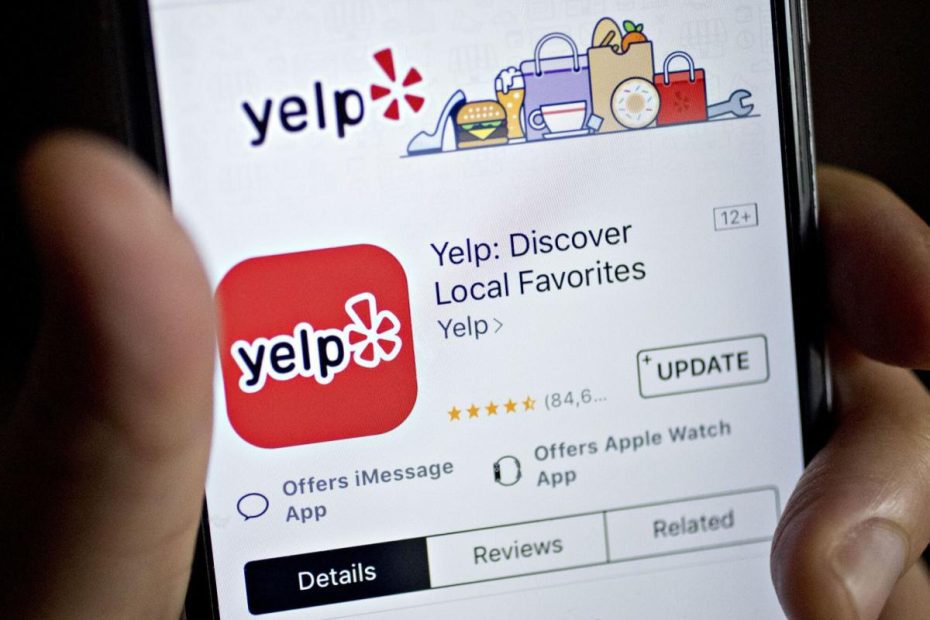(Bloomberg) — Online review site Yelp Inc. has filed a lawsuit accusing Google of having an illegal monopoly in local search, a sign of the legal troubles facing the search giant after the U.S. government scored a historic victory in its antitrust case against the company.
Most read from Bloomberg
Yelp alleges that the Alphabet Inc. unit has an unfair advantage in the market for local search and related advertising, both areas in which the San Francisco-based company has sought to compete with its detailed reviews of restaurants, beauty salons and other establishments. Yelp has been vocal about what it sees as Google's anticompetitive behavior for more than a decade. But the timing of Yelp's lawsuit, which comes just weeks after a federal judge in Washington ruled that Google was illegally monopolizing the search market through exclusivity deals, suggests that more companies may feel emboldened to take action against the search leader in the coming months.
Yelp relied on U.S. District Judge Amit Mehta's decision to show how Google used its monopoly in the universal search market to dominate other industries, Yelp general counsel Aaron Schur said in an interview.
Mehta's findings “really serve as the physical basis for our own claims,” Schur said. “Our case alleges that Google has abused that illegal monopoly in general search, which has already been decided by Judge Mehta, and that it uses that monopoly to favor inferior content itself in the adjacent market of local search and also the local search advertising market.”
A Google spokesperson said in a statement that the company will “vigorously defend against Yelp’s baseless claims.”
“Yelp's allegations are not new,” Google said, noting that similar allegations were rejected years ago by the Federal Trade Commission and recently by the judge in the U.S. Department of Justice case. “We will appeal the other aspects of the decision cited by Yelp.”
In its complaint, Yelp recounts how Google initially tried to get users off its search page and onto the web as quickly as possible, leading to a thriving ecosystem of sites like Yelp that attempted to provide the information consumers were looking for. But when Google saw how lucrative it could be to help users figure out which plumber to hire or which pizza to order, it decided to enter the market itself, Yelp alleges.
Yelp hopes the lawsuit will prevent Google from ranking its own ratings above those of competitors, Schur said.
“First and foremost, we want Google to stop its undue self-interested practices that are hurting consumers, hurting competition, and hurting the businesses that pay for local search ads,” Schur said. “That’s really what we’re focused on in this case.”
Yelp has been waging a battle against Google in the US and the European Union for years. The company has long accused Google of having an illegal monopoly on the Internet search engine market and, in particular, of abusing its dominant position by placing its own reviews higher in search results than those of its competitors.
The Justice Department is now considering breaking up Google in what would be Washington’s first attempt to dismantle a company for illegal monopolization since failed attempts to break up Microsoft Corp. two decades ago. Less severe options include forcing Google to share more data with competitors and measures to prevent it from gaining an unfair advantage in AI products, Bloomberg News reported.
Google has said it will appeal the judge's ruling. The U.S. plan would have to be accepted by Mehta, who would have to order the company to comply. A forced breakup of Google would be the largest of a U.S. company since AT&T was broken up in the 1980s.
Yelp may not be the only company rethinking its options following the ruling.
“I can't speculate about what other companies will do, but the self-preference that we describe in the complaint as a general issue is not unique to Yelp,” Schur said. “It's not a unique story.” The lawsuit was previously reported by the New York Times.
Most read from Bloomberg Businessweek
©2024 Bloomberg LP

